Exploring the dark history of the Krakow-Plaszow concentration camp is a sobering yet essential experience. This guided tour takes visitors through the site, sharing the harrowing stories of those who suffered and perished under the Nazi regime. From the military quarries to the factories, participants gain a deeper understanding of the atrocities committed and the immense sacrifices made. The tour emphasizes the importance of memorials, encouraging reflection on this tragic chapter and honoring the victims. Though the subject matter is undoubtedly heavy, the tour provides a poignant opportunity to confront the past and consider its lasting impact on the present.
Key Points
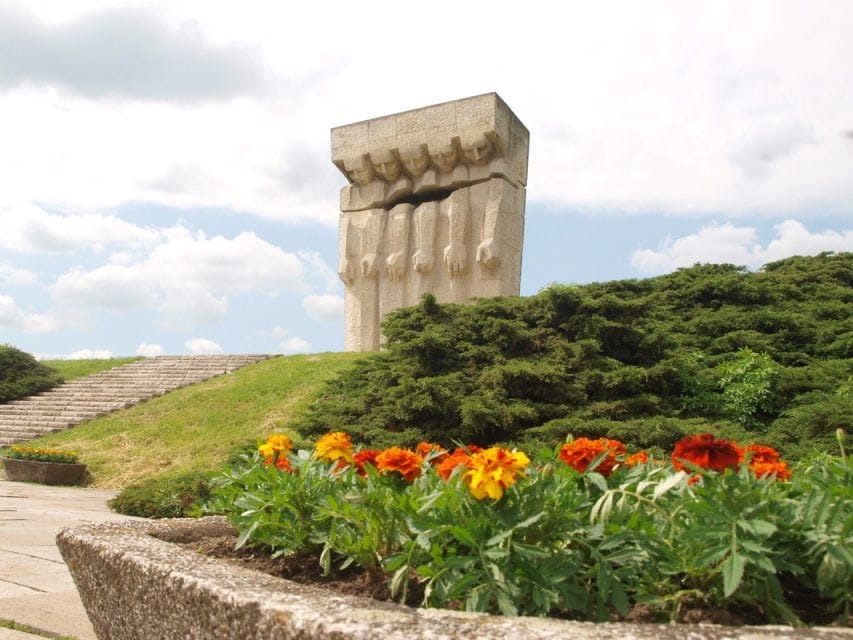
- This 2-hour guided tour provides an in-depth exploration of the history and significance of the Krakow-Plaszow concentration camp during World War II.
- Visitors can witness significant memorial locations, military quarries, and factories where prisoners were forced to labor under brutal conditions.
- The tour highlights the personal stories and experiences of prisoners, including the role of Oskar Schindler, and encourages reflection on the devastating impact of the Holocaust.
- Memorials throughout the tour offer opportunities to honor the victims of Nazism and their tragic fates.
- The tour aims to foster a deeper understanding of the grim realities of WWII and the persecution and suffering endured by those affected by the war.
Tour Overview
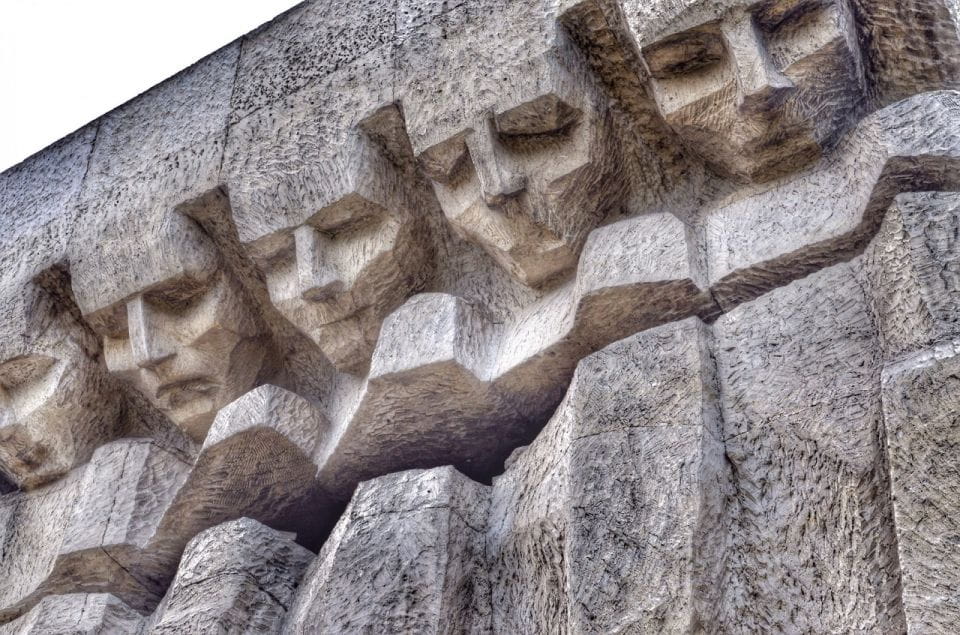
The Krakow-Plaszow guided tour offers visitors a poignant exploration of the site’s dark history, immersing them in the realities of WWII Europe through a meticulously curated 2-hour experience.
Priced at just $21.90 per person, the tour provides an in-depth look into the former Nazi concentration camp, with a live English-speaking guide leading the way.
Visitors can expect to visit various parts of the camp, including the military quarries and factories, learning about the experiences of those imprisoned here, including the inspiring story of Oskar Schindler.
The tour also includes a tram ride to the location and opportunities to pay respects at the site’s memorials, reflecting on the profound historical significance.
Loving the local insights? Here are more guided experiences we recommend in Krakow
Booking Information
Customers can reserve their spot on the Krakow-Plaszow guided tour with a ‘reserve now & pay later‘ option, ensuring flexibility and convenience.
Availability for various starting times can be checked online, with the meeting point conveniently located at the entrance to the Eagle Pharmacy Museum, identifiable by the excursions.city sign.
The two-hour walking tour offers an immersive experience, exploring the realities of WWII in Europe and visiting the site of Nazi crimes, a significant memorial location.
Guests will learn about the history of the Krakow-Plaszow concentration camp and gain insight into the experiences of those affected by this tragic period, including the story of Oskar Schindler.
Historical Context
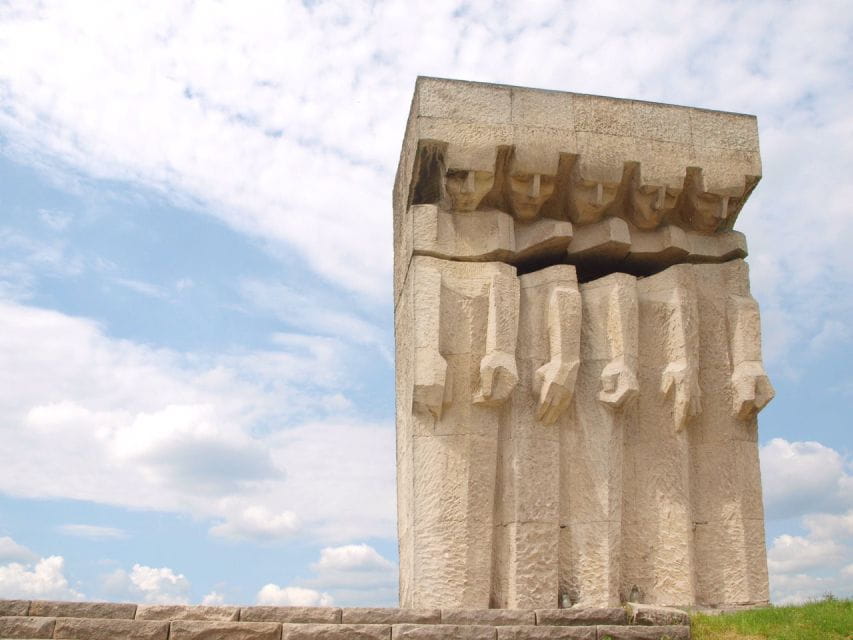
The Krakow-Plaszow concentration camp opened in 1940 as a forced labor camp, before being converted into a harsher Nazi concentration camp in 1941.
This tour provides an opportunity to explore the realities of World War II in Europe and visit a significant memorial location where Nazi crimes were committed. Guests will learn about the camp’s history and the experiences of those interned there, including the inspiring story of Oskar Schindler.
The tour highlights the personal stories and historical significance of this dark chapter, encouraging reflection on the devastating impact of the war.
Visiting the memorials dedicated to the victims of Nazism is a solemn and poignant experience, honoring those whose lives were tragically cut short.
Tour Experience
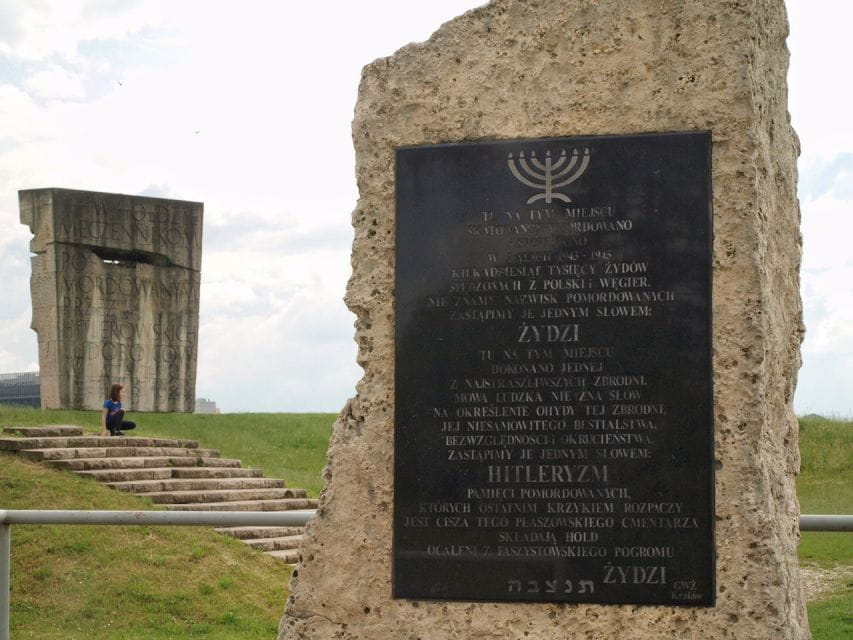
Guests start the tour at the former ghetto site, where they board a tram to reach the camp location.
During the walking tour, they explore various parts of the Krakow-Plaszow concentration camp, including the military quarries and factories that once operated there.
Along the way, the guide provides insight into the daily lives and experiences of the camp’s prisoners, including the inspiring story of Oskar Schindler.
The tour also visits a replica of the camp in the Liban Quarry, allowing visitors to gain a deeper understanding of the realities of life within the concentration camp.
Throughout the experience, guests are encouraged to reflect on the historical significance of the site and the personal stories of those affected by the horrors of the war.
Memorials and Respect
Throughout the tour, visitors pay their respects at several memorials dedicated to the victims of Nazism, reflecting on the historical significance and personal stories of those affected by the war.
At these solemn sites, guests are encouraged to pause and contemplate the gravity of the atrocities committed.
The tour guide provides insight into the memorials, sharing details about the individuals and groups they honor.
As visitors walk the grounds of the former camp, the weight of the experience sets in, prompting reflection on the horrors of the past and a renewed commitment to preventing such tragedies in the future.
The tour invites participants to honor the memory of the victims through thoughtful contemplation and reverence.
Explore Krakow-Plaszow
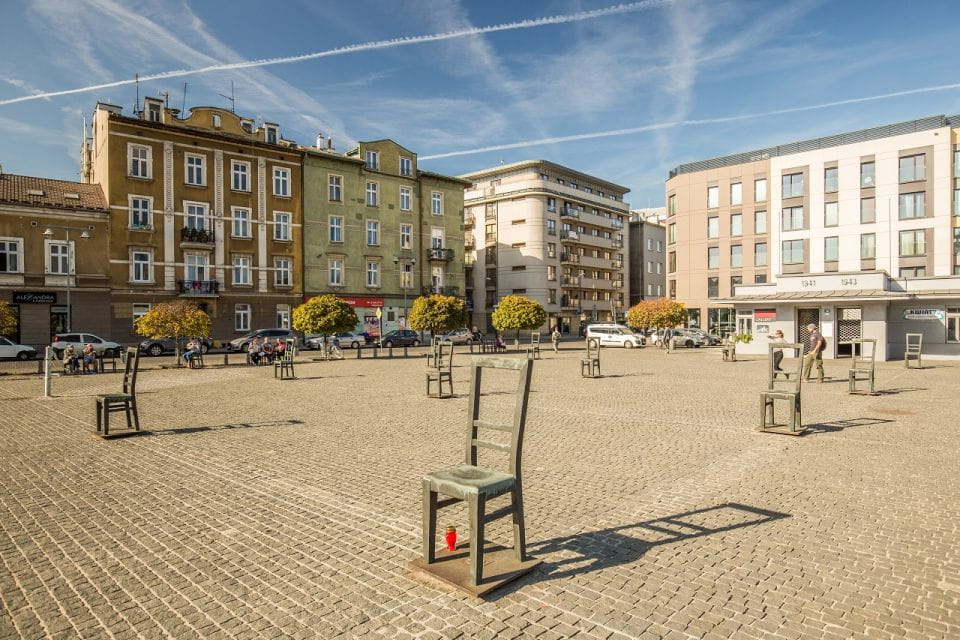
Delving into the Krakow-Plaszow concentration camp’s harrowing history, the tour transports visitors through the former Nazi site, shedding light on the grim realities faced by its prisoners.
The walking tour covers various areas of the camp, including:
- The military quarries where prisoners were forced to toil under brutal conditions
- The factories where they were exploited for labor
- The remnants of the camp’s infrastructure, serving as a somber reminder of its dark past
- The Liban Quarry, where a replica of the camp offers a vivid glimpse into the experiences of Oskar Schindler and the people he sought to protect
- The memorials that pay tribute to the victims, inviting reflection on the profound human cost of the Holocaust.
Understanding WWII Realities
The tour’s historical context allows visitors to grapple with the grim realities of the Second World War in Europe, immersing them in the harrowing experiences of those affected by the Nazi atrocities.
Krakow-Plaszow concentration camp, once a forced labor camp converted to a site of mass murder, stands as a somber reminder of the horrors of the Nazi regime.
Through the guided tour, guests gain a deeper understanding of the persecution, suffering, and resilience of those who endured the camp’s brutality.
The experience invites reflection on the personal stories and historical significance of this dark chapter, fostering a profound appreciation for the struggles and sacrifices of the past.
Frequently Asked Questions
Is the Tour Wheelchair Accessible?
The tour may not be fully wheelchair accessible, as historical sites can present accessibility challenges. Visitors are advised to inquire about specific accommodation needs when booking the tour to ensure a comfortable and meaningful experience.
Can I Take Photos During the Tour?
Guests are generally permitted to take photos during the tour, but should do so respectfully and avoid disrupting the solemn atmosphere. Some areas may have restrictions to preserve the memorial’s integrity. It’s best to check with the guide.
How Much Walking Is Involved in the Tour?
The tour involves a considerable amount of walking, as it covers various parts of the former Nazi concentration camp and associated sites. Participants should expect to be on their feet for the full 2-hour duration of the tour.
Are There Any Age Restrictions for the Tour?
The tour is open to all ages, but it’s best suited for mature audiences. Children should be accompanied by an adult as the subject matter can be heavy and emotionally impactful. Discretion is advised when deciding if the tour is appropriate for younger visitors.
Can I Bring My Own Snacks or Drinks on the Tour?
Participants are generally able to bring their own snacks and drinks on the tour. However, it’s important to be respectful of the somber setting and avoid anything disruptive or disrespectful. The tour guides may provide guidance on appropriate behavior.
Recap
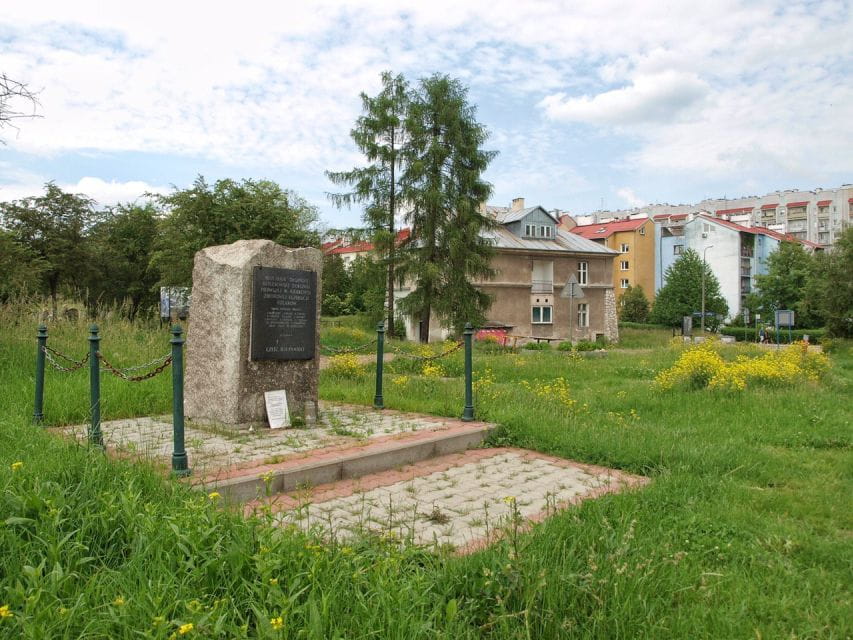
The Krakow-Plaszow Guided Tour provides a sobering yet essential exploration of this dark historical site.
Visitors gain a deeper understanding of the atrocities committed during WWII and the sacrifices made by its victims.
The tour emphasizes the importance of memorials, encouraging reflection and honoring those who suffered.
Through this poignant experience, participants can better grasp the realities of this tragic chapter and its lasting impact.
More Guided Tours in Krakow
- Schindler’s Factory Skip-the-line Guided Tour with Options
- Krakow: Former Concentration Camp Plaszow Guided Tour
- Kraków: Guided Tour of the Torture Museum
- Krakow’s Rynek Underground Museum Tour with Ticket and Guide
- Schindler’s Factory Museum Guided Tour – Krakow
- Krakow: Wawel Castle and Cathedral Guided Tour
More Tours in Krakow
- Krakow: Jewish Quarter Segway Tour
- Krakow: Guided Sightseeing Tour by E-Scooter with Snacks
- Krakow: Private Shopping Tour with Snacks and Beer Tasting
- Kraków: Guided Vodka Tour with Food and Drink Tastings
- Krakow: Royal Route Segway Tour 1 hour
- Wawel Hill, St.Mary’s Church & Rynek Underground Guided Tour
More Tour Reviews in Krakow
Not for you? Here's more things to do in Krakow we have recnetly reviewed
- Krakow: Old Town by Golf Cart & Guided Tour of Wawel Castle
- Schindler’s Factory and Jewish Ghetto Guided Tour
- Krakow: Horror House Entry Ticket
- Rynek Underground & Wawel Castle, Cathedral – Krakow
- Krakow: 1-hour Bubble Football Game
- From Krakow: Polish Thermal Baths in Tatra Mountains
- Krakow: House of Attractions Gold Package 2+2 Entry Ticket
- Krakow: City Tour by Electric Golf Cart
- Krakow: Full-Day Bike Rental
- Krakow: Slovakia Treetop Walk & Zakopane Tour (Hotel Pickup)
- Kazimierz, Schindler’s Factory & Ghetto Guided Tour
- Krakow: WWII Private Guided Tour & Eagle Pharmacy Entry
